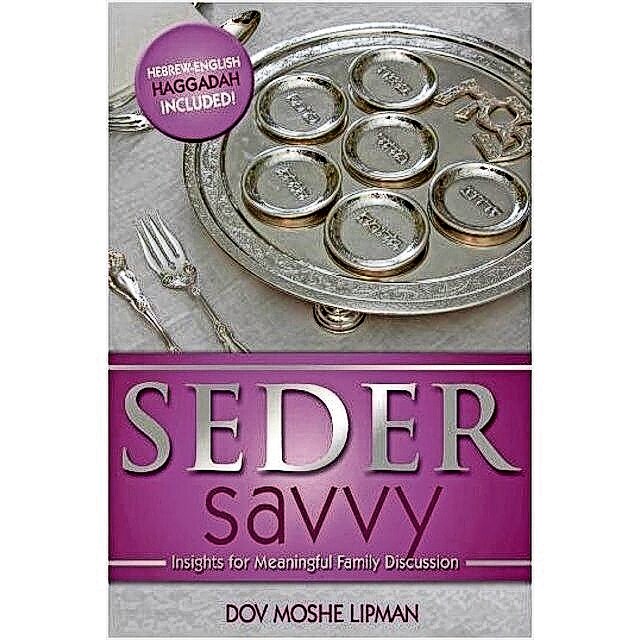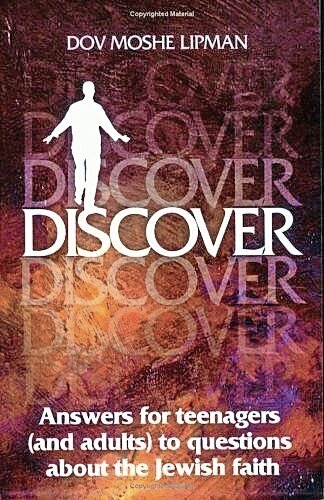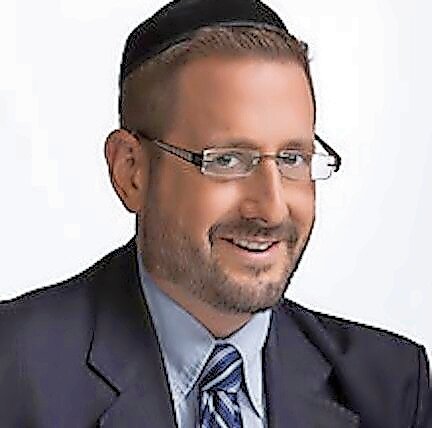As Pesach nears, discovering our tradition anew
With the onset of Pesach, I find the study of the historical and philosophical side of our religious tradition to be of great inspiration in getting myself into the “holiday mood.” Thus, this week’s essay will focus on two works by Rabbi Dov Lipman that should help assist many in getting into this holiday mood.
The spiritual quest that Rabbi Lipman focuses on in his works, “Discover” (Feldheim, 2006) and “Seder Savvy: Insights for Meaningful Family Discussions” (Targum Press, 2010) describe in eloquent and intelligent terms the basic elements that make up the beliefs of our sacred tradition.
“Discover” goes to the heart of our tradition by dealing, in great detail, with such topics as Torah MiSinai, Torah She’baal Peh, the purpose of Creation, and the role of prayer and study. Some profound and heartfelt teachings are found in his essays on Women in Judaism, Suffering and Tragedies, Death, the Resurrection of the Dead, and the coming of Moshiach.
In his personal approbation to this work, Rabbi Aharon Feldman, Rosh Yeshiva of Ner Yisrael, wrote the following:
“The Torah and Judaism proclaim that man is successful if he accepts the dominion of G-d and makes his life an expression of His will. This stands in stark contrast to much of modern culture whose premise is that human autonomy is the ultimate good and that man’s success lies in the fulfillment of his fantasies of power and pleasure.
“A student in a modern day yeshiva high school is constantly — consciously or sub-consciously — faced with this conflict of view. He needs to understand why he should accept upon himself the way of the Torah and why it is superior to the lifestyle he sees in the world around him.
“Rabbi Dov Lipman, who has spent many years teaching these students, has produced a modern ‘Guide for the Perplexed’ for them. He explains why Jews must believe in Torah, and skillfully addresses many of the issues confronting a modern student.”
Rabbi Lipman notes the valued role that his Rosh Yeshiva, Rabbi Yaakov Weinberg, zt”l, played in influencing his teachings and writings.
“The Rosh Yeshiva’s approach to learning, thinking and looking at the world impacted me greatly. His advice and answers to my many questions gave me direction in life. … The Rosh Yeshiva taught me not only that we should ask questions, but also that there are answers to these questions and that these answers can be found in the Torah. I have also gained approaches and answers to many questions from the works of Rabbi Aryeh Kaplan, zt”l, and Rabbi Yitzchak Kirzner, zt”l.”
In the chapter titled “Torah Study,” Rabbi Lipman, cites the influence of Rabbi Feldman:
“Most mitzvos are performed using our bodies. In the process, we elevate our bodies to a higher plane. Torah study is the mitzvah which elevates our minds. In fact, our minds need a mitzvah even more than our bodies since our minds are constantly working. Aside from the elevation, the way to simply insure that our minds are constantly in subordination to G-d is by occupying our minds with what G-d wants us to do — which is Torah study and thought.”
In the footnote to this teaching, Rabbi Lipman informs us of the following:
“My thanks to Rabbi Aharon Feldman, shlita, for teaching me this concept and for pointing out that Rabbeinyu Yonah explains that this is why the mitzvah to study Torah is found in the first paragraph of Shema, which deals with accepting the yoke of serving G-d. As a mitzvah of the mind it plays a central role in our accepting G-d’s authority and his mitzvos.”
Rabbi Lipman’s commentary on the Haggadah, “Seder Savvy,” (Targum, 2010) deserves a rightful place at your seder table to help enrich the repertoire of Torah teachings to supplement the Haggada texts. In his introduction, Rabbi Lipman writes:
“When we educate our children regarding Torah and Judaism, we should use the same care used to build a tower, whose endurance depends completely on the strength of its foundation. It is my hope that this work will enable seder night to serve as the foundation for a lifetime of spiritual growth for ourselves and our children, while providing a solid basis for spiritual dialogue and spiritual relationship between grandparents, parents, and children.”
I conclude this week’s essay with the following words of tribute by one of our community’s leading singers and music composers, Rabbi Yitzy Bald of Bayswater, who wrote the following:
“I have fond memories of Rabbi Dov Lipman from our time together at Mercaz Hatorah, Talpiot Yerushalayim, 1989–90. It was an amazing year. First and foremost, he was a Ben Torah with impeccable midos. He was learned and fun loving at the same time … a very well rounded and balanced attitude both in ruchniyus and gashmiyus.”
This observation, in essence, reflects the quality of the man and of his teachings for all of us to benefit from.
Originally published in 2015.











